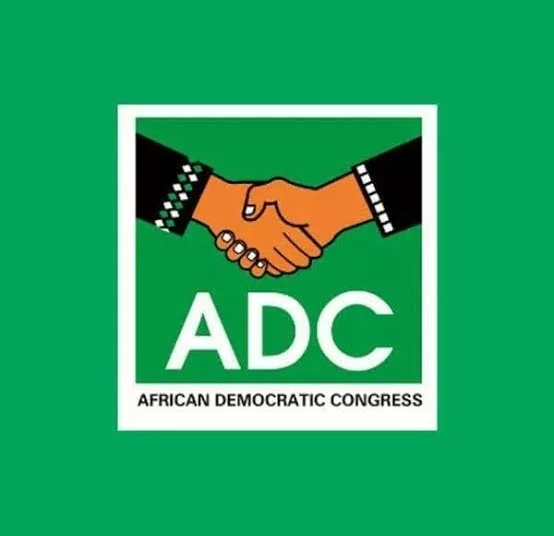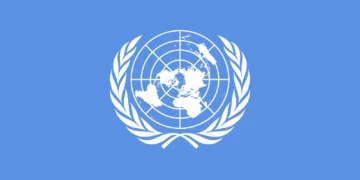In Nigeria’s political evolution, few events shape the national imagination like the birth of a new political movement. The unveiling of the African Democratic Congress (ADC) by former Vice-President, Atiku Abubakar and former Labour Party presidential candidate, Peter Obi has stirred renewed conversation on realignments in the country’s democratic journey.
But this is not the first time Nigeria has witnessed a merger promising national rebirth. History is replete with coalitions that inspired hope, only to collapse under the weight of ambition, weak institutions, and elite capture.
From the first post-independence experience, mergers were always rooted in necessity, not principle. In fact, since independence, the political landscape has been delineated by intrigues, manipulations and strategic maneuvering, as well as the alignment and re-alignment of various political factions and forces, aimed at fulfilling the political aspirations of establishing two predominant parties of comparable strength, displacing the incumbent party, securing electoral victories, and obtaining political authority to govern the state and execute the authoritative allocation of resources within the Nigerian polity.
In the first republic, The Northern People Congress (NPC) won 142 seats, the National Council of Nigeria and the Cameroons (NCNC) 89 seats and Action Group (AG) 73. None of these parties including NPC with 142 was able to meet 2/3 majority seats required to form government alone at the national level. The NPC and the NCNC formed a national coalition to stabilise power after independence.
Though appearing like a handshake across the Niger, the marriage of convenience between the NPC and NCNC was fragile, marred by regional suspicion, personality clashes, and incompatible visions. The resulting political chaos helped trigger the first military coup in 1966, ending the experiment prematurely.
The Second Republic offered another chapter. The Nigerian People’s Party (NPP), The Unity Party of Nigeria (UPN), The Peoples Redemption Party (PRP) and the Great Nigerian Peoples Party (GNPP) formed the People’s Progressive Alliance (PPA) against the National Party of Nigeria (NPN). However, rivalry of the political actors could not allow the alliance to go through. At the end, NPP struck an alliance with the NPN. The NPN/NPP alliance wobbled until the end of the first term in office due to differences in the programmes of the two parties. The political marriage promised stability but soon ended in acrimony. Once again, personal ambition and lack of ideological coherence doomed the coalition. The problem was never just the structure—it was the lack of shared vision, internal discipline, and accountability to the Nigerian people.
Fast forward to the 1999 transition, and the People’s Democratic Party (PDP) emerged as a grand coalition of interests: retired military elites, technocrats, businessmen, and old politicians. It enjoyed broad support and reigned for 16 years. However, internal democracy eroded rapidly. Factions grew, and impunity deepened. The party’s fall was not sudden; it was the logical outcome of abandoning reform for political convenience.
The most consequential merger in recent memory remains the birth of the All Progressives Congress (APC) in 2013. It brought together the Action Congress of Nigeria (ACN), Congress for Progressive Change (CPC), All Nigeria Peoples Party (ANPP), and factions of APGA and the PDP. It was Nigeria’s most sophisticated political realignment in decades. The architects—Bola Tinubu, Muhammadu Buhari, and others—achieved what many thought impossible: they defeated the PDP in 2015.
Yet, like those before it, the coalition soon unraveled under the pressure of governance. APC secured power but failed to build a cohesive national vision. Instead, Nigerians were left with economic hardship, increasing insecurity, and growing distrust in state institutions.
This is the backdrop against which the ADC emerges. Its founders represent opposing ends of the political spectrum—North and South, old guard and new generation, elite and populist. But it also carries the same risks: personal ambition masquerading as national interest, media spectacle without grassroots substance, and the absence of an ideological anchor.
As a newspaper, we believe that what Nigerians seek today is not another acronym or alliance. They want a political force that can rebuild public trust, strengthen institutions, and deliver measurable governance outcomes. That requires more than campaign slogans or press conferences. It demands clear ideological commitments, internal democracy, policy vision, youth inclusion, and the discipline to resist business-as-usual politics.
To succeed, the ADC must break from historical patterns. It must not become a platform to revive old political careers or share positions among big names. It must build a structure that can outlast elections—rooted in values, driven by people, and grounded in accountability. It must offer more than criticism of the status quo; it must present a credible alternative with real policies and a framework for national unity.
There is a growing crisis of legitimacy in Nigeria’s democracy. The 2025 Nigeria Social Cohesion Survey revealed collapsing trust in political parties, elections, and state institutions. The ADC’s formation must, therefore, be viewed through this lens. It is not just a strategic political move; it is a test of whether Nigerian politicians can still inspire hope through principled action. Will this new coalition reflect the urgency of the times or merely recycle old habits under a new name?
Ultimately, history teaches us that mergers do not fail because of structures—they fail because of motives. If the ADC is to succeed where others failed, it must rise above personality politics and commit to institutional reform. It must inspire civic confidence, not just electoral excitement. The burden of proof lies with its leaders. Nigerians are watching, not with excitement, but with cautious skepticism.
This moment calls for more than political theatre. It calls for a disciplined, visionary movement that learns from history and dares to be different. If the ADC is serious, it must seize this moment—not for power, but for purpose.





